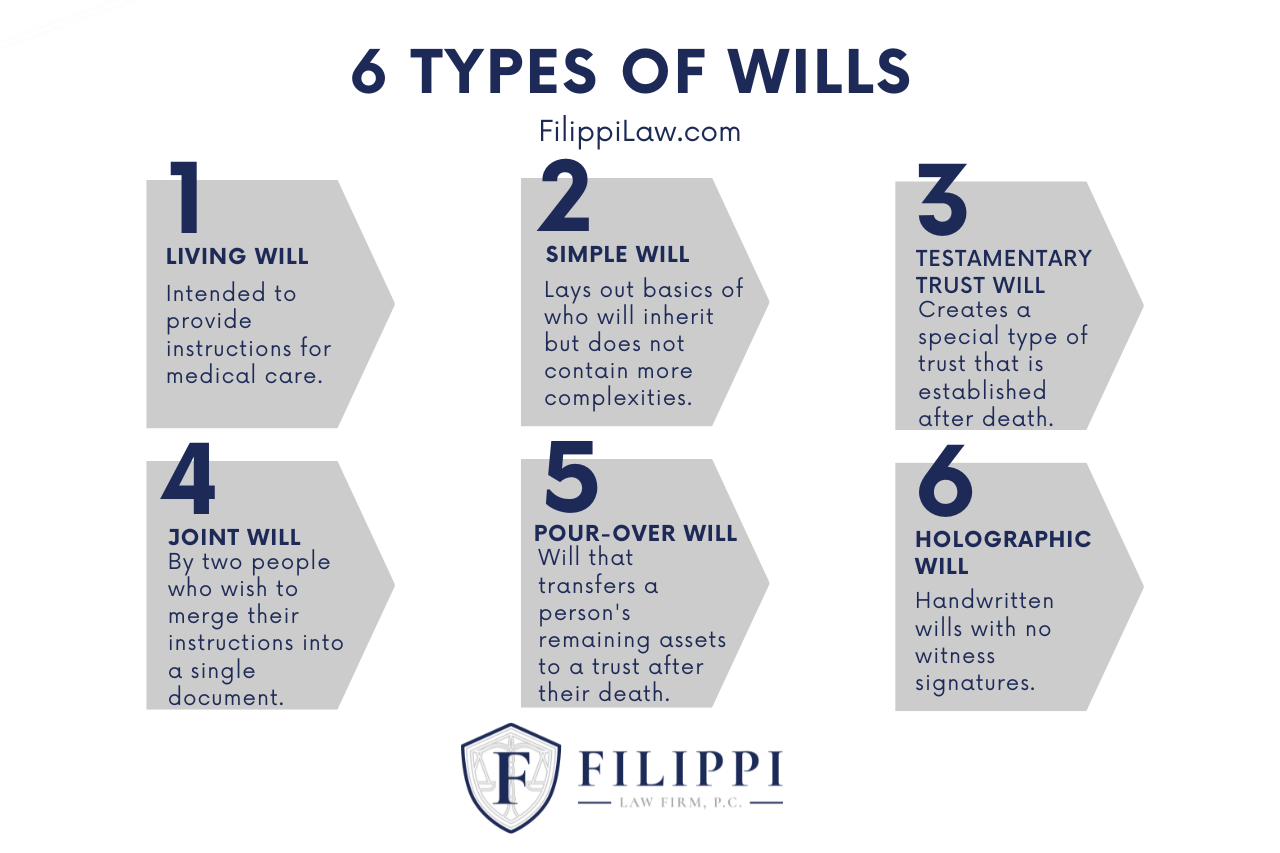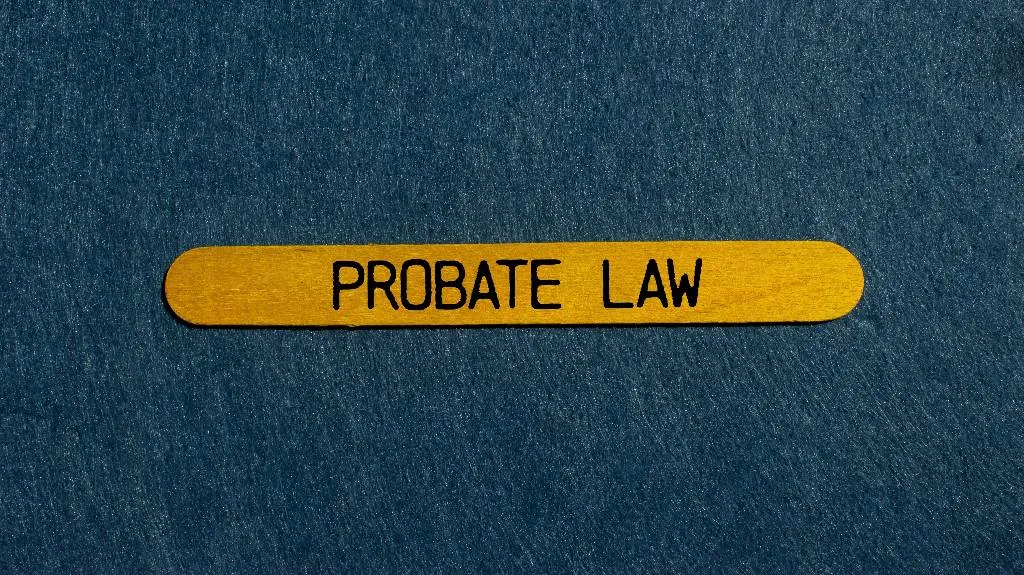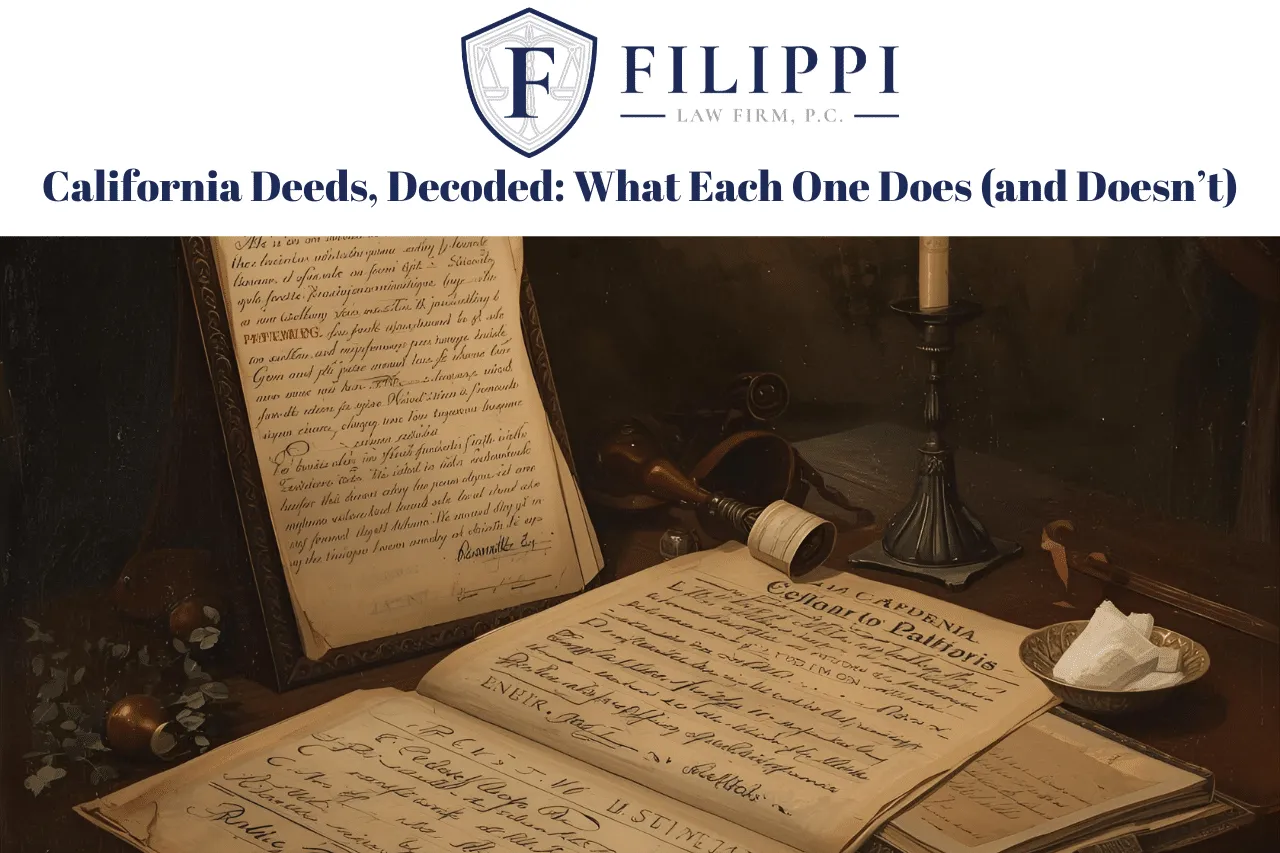In estate planning, wills are essential for guaranteeing that your assets are allocated in accordance with your last wishes. But not all wills are made equal, and knowing the subtle differences between each kind is essential to making well-informed decisions regarding your estate. We’ll look at seven distinct will types in this blog post, from the most common to the least common.
Living Will: A living will, sometimes referred to as an advance healthcare directive, is a legal document that states your preferences for medical care in the event that an illness or disability prevents you from communicating your wishes. In contrast to conventional wills that mainly deal with the distribution of assets, a living will concentrates on healthcare choices, such as whether to give priority to comfort care or prolong life artificially.
Get a Free Consultation Today
Simple Will: is a straightforward legal document that specifies how you wish your possessions to be distributed after your death. It usually contains clauses that deal with beneficiary designation, selecting an executor to oversee your estate, and handling any particular instructions or bequests you may have. Simple wills are appropriate for people with simple estates and simple family structures.
Testamentary Will: When most people think of a typical will, they picture a testamentary will. It’s an official document that’s usually created with legal counsel and signed in front of witnesses. A testamentary will takes effect upon the testator’s death and is subject to the legal procedure known as probate, which carries out the tasks of confirming the will and administering the estate.
Joint Will: Two people, typically couples, can outline their desires for the distribution of their combined assets in a single document called a joint will. In contrast to individual wills, a joint will usually provides for the ultimate division of assets upon the death of the second spouse but leaves everything to the surviving spouse upon the first spouse’s death. Joint wills are less flexible and might not be able to take into account changes in relationships or circumstances, even if they can simplify the estate planning process for some couples.
Holographic Will: In a holographic will, the testator completely drafts, dates, and signs the document by hand without the need for witnesses. Holographic wills are less formal than formal testamentary wills, and in certain jurisdictions, they can be valid without the need for witnesses. They might, however, be examined more closely during the probate process to make sure they are genuine and following the law.
Pour-Over Will: When paired with a revocable living trust, a pour-over will directs that any assets not already placed in the trust during the testator’s lifetime be poured into it upon their passing. This method streamlines the estate administration process and gives you more control over how assets are distributed by ensuring that they are maintained and distributed in accordance with the conditions of the trust rather than through probate. Pour-over wills provide privacy benefits and streamline the probate process, although they do not completely remove the need for it. In order to ensure that the pour-over will and trust meet specific requirements and goals and offer comfort to the testator and beneficiaries, it is imperative that the trust be adequately funded during the testator’s lifetime and that the testator works with a knowledgeable estate planning attorney.
Bonus Will
*Oral Will: An oral will is a written statement of a person’s last desires given in front of witnesses. Generally speaking, oral wills are only accepted under specific conditions—for example, when a person is about to pass away and cannot write a will. Nonetheless, they may not be accepted in all jurisdictions and are subject to strict legal requirements. These types of wills are typically not valid in California.
The kind of will you select will depend on your particular circumstances, preferences, and applicable laws. Whether you choose a basic will for basic asset distribution, a living will to handle healthcare decisions, or a more formal testamentary will prepared with legal assistance, it is crucial to give your final wishes due consideration and to ensure that the appropriate paperwork is prepared. To make sure that your will complies with all applicable laws and to find the best kind for your purposes, it’s best to speak with an estate planning lawyer with experience. You can give yourself and your loved ones peace of mind in the future by being proactive in organizing your estate.
We can draft a will for your needs or take a look at our comprehensive estate plan package.




